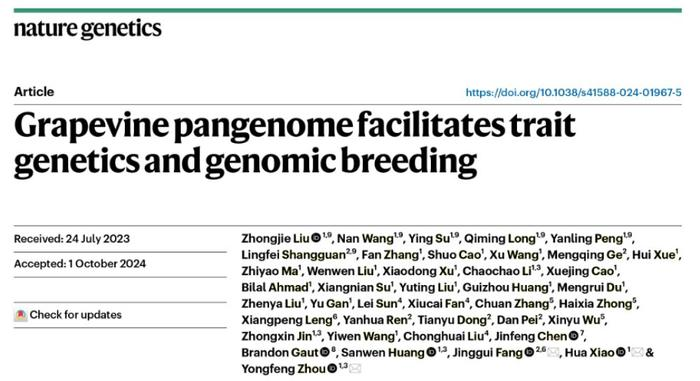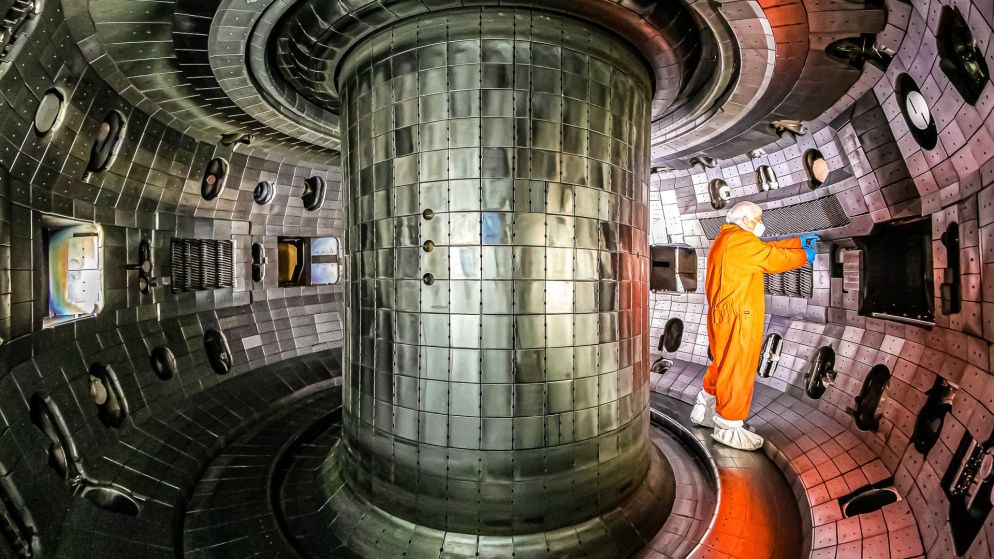-
China's scientists use artificial intelligence to accelerate grape breeding, increasing efficiency by 400%
From the Chinese Academy of Agricultural Sciences Institute of Genomics official WeChat public number was informed that today "Nature Genetics" published online the Chinese Academy of Agricultural Sciences, Shenzhen Institute of Agricultural Genomics (Lingnan Modern Agricultural Science and Technology Laboratory of Guangdong Province, Shenzhen sub-center) Zhou Yongfeng team to use artificial intelligence to carry out the latest research results of grape breeding. The research will dramatically shorten the grape breeding cycle, and the accuracy of prediction of grape agronomic traits is as high as 85%, which is 400% higher than the traditional method.This research is expected to realize the precision design breeding of grapes, accelerate the innovation of grape varieties, and...- 1.7k
-
With an accuracy rate of 70%, scientists use AI to interpret dog barking
Researchers are trying to use AI to interpret whether a dog's barking is playful or angry. At the same time, researchers are also trying to use AI to identify the dog's age, gender and breed. Researchers at the University of Michigan collaborated with the National Institute of Astrophysics, Optics and Electronics (INAOE) in Puebla to conduct this research and found that AI models originally used to train human speech can be used as a starting point for training animal communication models. Image source: Pixabay Rada Mihalcea, head of the University of Michigan's Artificial Intelligence Laboratory, said that artificial intelligence is in... -
AI helps stabilize the output of the "artificial sun": predicting plasma "tearing" in fusion 300 milliseconds in advance
Scientists have been exploring and pursuing the dream of nuclear fusion power generation for decades, but due to various challenges, these experimental reactors have not yet reached the level of replacing fossil fuels. One of the key challenges in making nuclear fusion generate stable electricity is the unpredictability of superheated plasma, but the Princeton Plasma Physics Laboratory (PPPL) has made a major breakthrough in this regard. The PPPL team has designed and developed a new artificial intelligence that can predict plasma "tearing" in fusion 300 milliseconds in advance, thereby smoothing out irregularities and hopefully avoiding reactor restarts in the future. Poly…- 881
❯
Search
Scan to open current page
Top
Checking in, please wait
Click for today's check-in bonus!
You have earned {{mission.data.mission.credit}} points today!
My Coupons
-
¥CouponsLimitation of useExpired and UnavailableLimitation of use
before
Limitation of usePermanently validCoupon ID:×Available for the following products: Available for the following products categories: Unrestricted use:Available for all products and product types
No coupons available!
Unverify
Daily tasks completed:


